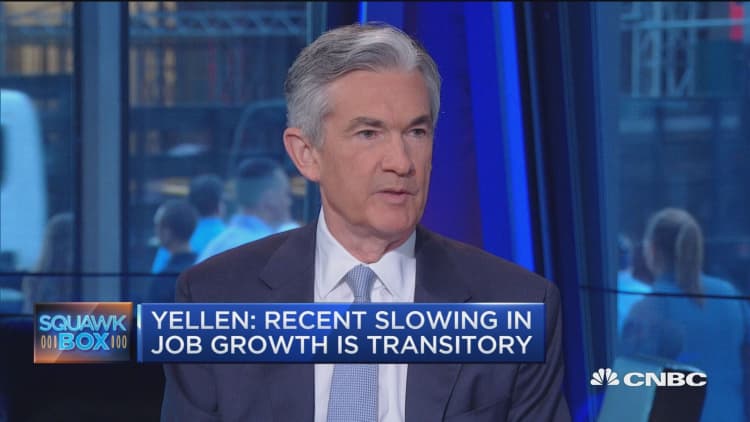
Federal Reserve Governor Jay Powell told CNBC on Wednesday the referendum on whether the U.K. should leave the European Union may make for dicey trading in financial markets.
"The markets have been responsive to changes in the polls, clearly, so the vote could certainly bring on significant volatility," Powell told "Squawk Box" a day before the referendum.
If the leave camp wins, "financial conditions could tighten. It could have an economic effect on the U.K. and the EU," he continued. "We would feel that, as well. We could very well feel that if there were a significant risk-off move."
But Powell added that the U.S. central bank is "ready for whatever happens" Thursday. "Global developments, global weakness ... are really important for the setting of U.S. monetary policy."
The U.S. economy is outperforming other economies around the world, putting Fed policymakers in the position to possibly hike interest rates, he said. But he said the Fed should "wait and see how much momentum there is the economy."
The economy weakened in the fourth quarter of 2015 and the first quarter of this year. "It's a little bit looking like it's coming back in Q2," Powell said.
At the same time, he said, the strengthening labor market over the past three years "has let us look through the volatility and GDP," but he pointed to weak jobs reports in April and May as a concern.
Powell spoke ahead of Fed Chair Janet Yellen's morning appearance before the House Financial Services Committee. It's the second day of her semiannual economic testimony to Congress.
On Tuesday, Yellen expressed concerns about a possible Brexit. She was generally optimistic about the U.S. economy and played down the risk of a recession. Yellen ruled out implementing negative interest rates in the U.S., should more Fed stimulus be needed.
Powell told CNBC on Wednesday that Fed policymakers could use a hand from Congress and the White House. "Monetary policy has been really in the ring alone, and could use some help, certainly from fiscal and regulator policy."
The Fed raised rates in December for the first time in more than nine years. At the time, central bankers projected four more rate hikes in 2016. But the new year market turmoil scaled back those expectations.
As the stock market bottomed on Feb. 11 and marched higher, the minutes from the Fed's April meeting put a June or maybe a July hike on the table. But recent concerns about the Brexit vote has pushed expectations of any future rate increases much further out.
The stock market had been pressured on Brexit concerns, though as the stay camp gained ground in recent days the Dow Jones industrial average, , and Nasdaq logged three advances in the past four sessions.


